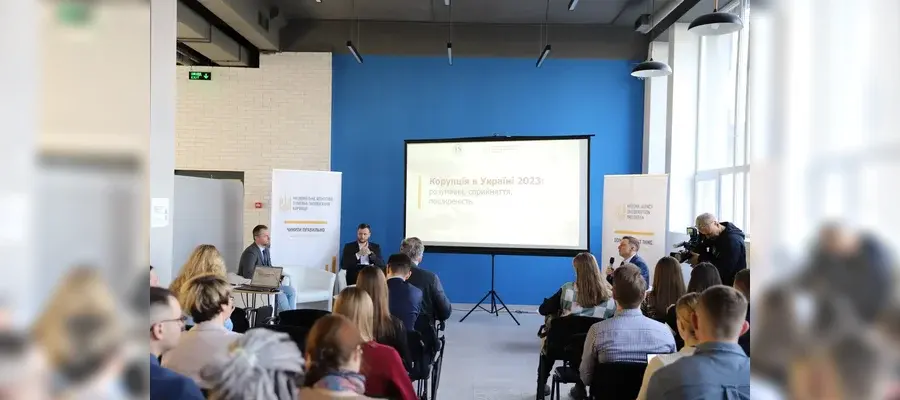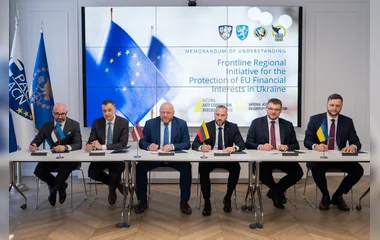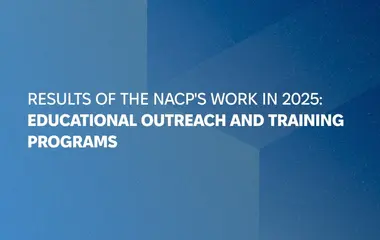The National Agency on Corruption Prevention (NACP) has presented the results of a sociological survey on a comprehensive assessment of the corruption situation in Ukraine in 2023. This is one of the most thorough studies of key measures of corruption in the most important areas of public life, which is conducted annually by the NACP.
Thus, corruption remains the second most serious problem in Ukraine after the armed aggression of the Russian Federation. This is noted by both business representatives (73%) and ordinary citizens (72%). The top 5 problems also include injustice in the justice system. This problem is ranked fourth by respondents of both categories - 56% of entrepreneurs and almost 60% of citizens.
For the population, the top priority areas that need to be cleared of corruption are the judiciary (51%), customs (38%), and state and municipal healthcare (30%). For entrepreneurs, it is customs (58%), public procurement of works and services for construction, repair and maintenance of roads (33%), and the judicial system (including enforcement of court decisions) (32%).
"An effective anti-corruption policy of the state should rely on high-quality data on the real situation with corruption. The results of the survey allow us to identify the most problematic corruption areas and are based on the assessment of corruption experience of the population and entrepreneurs. We will use this data to improve the key areas of the NACP's work," said NACP Head Viktor Pavlushchyk.
According to Mr. Pavlushchyk, the trends and dynamics revealed in the survey should be compared with the pre-war period rather than with the previous year, which became exceptional and unrepresentative due to a number of objective circumstances.
The point is that in 2022, the country's security and survival were an absolute priority over other issues, including corruption. Business activity in the country, the density of contacts with government agencies and their control and inspection functions were minimal or even stopped for some time, which significantly affected the indicators of perception and experience of corruption.
The integral indicators of the effectiveness of the state anti-corruption policy in general show that the share of the population that had their own corruption experience in 2023 (19.5%) decreased compared to 2021 (26%), but increased slightly compared to 2022 (17.7%). For businesses, this indicator remained almost same since last year (22.2%) compared to 2021 (21.6%), but has exacerbated significantly compared to 2022, when the share of entrepreneurs who faced corrupt practices was 15.4%.
Despite a number of negative trends revealed by the survey, it is worth noting that about 60% of the population and entrepreneurs have a negative attitude towards corruption. Also, society has formed a clear position of approval of actions to expose corruption. The respective indicator according to the survey continued to grow: in 2023, the vast majority of both the population (67%) and business (90%) approved the activities of corruption whistleblowers, which strengthens the country's potential for successful anti-corruption efforts in the future.
"Speaking about the main results of our research, we see a steady trend of growing public demand for fighting corruption. Construction and land relations remain the most corruption-prone areas, so in the context of the reconstruction process, it is important to focus on minimizing corrupt practices in these areas. The judiciary and customs also remain problematic in terms of corruption for both the public and businesses. In addition, the survey showed insufficient awareness of citizens about existing digital services as an alternative to corrupt practices, so we need to strengthen awareness-raising in this area," said Dmytro Kalmykov, Head of the NACP Anti-Corruption Policy Department.
Mr. Kalmykov added that the findings of the study will be presented to the entities that citizens believe are responsible for the state's anti-corruption policy - the President, the Verkhovna Rada and the Cabinet of Ministers, as well as individually to each relevant government agency to adjust their activities in the sectoral context. The findings will also be used to develop a new Anti-Corruption Strategy.
The survey was conducted by Info Sapiens agency at the request of the NACP. The survey was funded by the State Budget of Ukraine for the first time.
The survey is available here.









